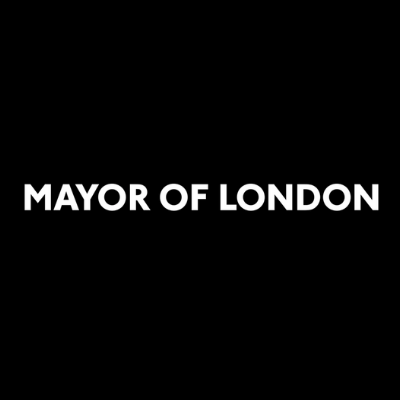
- World’s largest ever study of its kind will monitor air quality exposure of 250 children on their way to school and in the classroom
- City Hall, King’s College and Dyson co-operate on state-of-the-art wearable technology
- Latest component of the Breathe London project, the world’s most comprehensive network of air quality monitors.
The Mayor of London, Sadiq Khan, is funding a study that will use state-of-the-art toxic air monitoring backpacks for school children, to help monitor and better understand the levels of toxic air young Londoners are exposed to during their journeys to school and in the classroom.
250 pupils from five London primary schools, situated across five boroughs (Southwark, Richmond, Greenwich, Haringey and Hammersmith and Fulham) will take part in the project, wearing specially adapted backpacks to and from school for a week.
Weighing just over 1kg, the sensors fit into lightweight bags and measure particulate matter (PM2.5 and PM10) and nitrogen dioxide (NO2) levels. The children involved will use the backpacks like a normal bag (the monitor takes up one pocket, leaving plenty of room for school equipment), allowing the monitors to record pollutant levels on each child’s journey to school and throughout the school day.
The data from this study will allow King’s scientists to analyse at which point of their journey to school (or which part of their school day) children are exposed to the most pollution. They will also be able to the compare the exposure of children who have similar journeys but take different routes and travel modes and then make recommendations of how children can reduce their exposure in future.
The wearable sensors are the latest stage of the Breathe London project to create the world’s most comprehensive air quality monitoring network. Breathe London, which includes hundreds of fixed monitors and the deployment of air quality monitoring cars on the streets of London, is being delivered by a consortium led by Environmental Defense Fund Europe (EDFE) and mostly funded by the Children’s Investment Fund Foundation (CIFF). The project itself was devised by City Hall and the C40 Cities – the leading global alliance of cities committed to addressing climate change. Once this approach and technology has been proven in London, the goal is to see it introduced in cities around the world.
The Mayor launched the project this morning at Haimo Primary School in Greenwich, one of five schools at which the backpacks will be used. As well as hosting one of the new Breathe London fixed monitors, Haimo was also one of 50 schools involved in the Mayor’s air quality audits programme last year. The school has already started implementing recommendations to improve air quality around the school by providing Walking Route Maps and delivering energy efficiency measures to reduce the school’s air quality footprint. The Royal Borough of Greenwich has turned the road outside the school into a ‘school street’, which means it is closed to traffic at the start and end of the day. This has led to a 35 per cent reduction in parents driving children to school, a 33 per cent increase in scooting and an 11 per cent increase in walking.
The Mayor of London, Sadiq Khan said: “It remains a shameful fact that London’s toxic air is harming the lung growth and health of our young children, and City Hall is determined to do everything in our power to protect them.
“An issue this large and complex requires bold and innovative action to protect future generations and ensure our children inherit cleaner, healthier air. I’m proud that we’re able to launch world leading studies like this which will help us find new ways to reduce children’s exposure to toxic air. I hope the success of this scheme will act as a blueprint for cities around the world as they battle their own toxic air emergencies.
“The health of London’s children is key to everything we do to improve air quality. We’ve already conducted air quality audits at dozens of schools and nurseries across London, resulting in positive changes that are helping reduce pollution and clean the air for thousands of pupils. But alongside these measures, we need strong action, I will continue to prioritise the health of all Londoners with a range of strong measures including cleaning up the bus fleet, funding a scrappage scheme for micro-businesses to remove the most polluting vans and, next month, the launch of the world’s first Ultra Low Emission Zone in the central London Congestion Charge area. But we can’t win this battle without more help from the Government, who are still failing to take this problem seriously and offer the support London needs to tackle this public health crisis.”
Kate Barnes, Head teacher at Haimo Primary School said: “Haimo children work hard to promote and campaign for changes that support a healthy lifestyle for themselves, our community and beyond. They are aware of the dangers of air pollution and how action is needed and have successfully campaigned for Haimo Road to be closed both at the start and end of the school day. Our focus on air quality has developed their understanding of social responsibility, not only for themselves, but for future generations.
We intend to use our grant money to implement further projects for our children to lead on. This includes creating a green space and purchasing bike sheds. Our children will develop the skills and knowledge that will provide them with opportunities throughout their lives to take on active roles and be inspired to become leaders of the future.
Haimo children are very excited to be taking part in the Breathe London Wearable Study and believe that this is a great way to audit the air quality and further develop the engagement and responsibility of the youngest members of our society.”